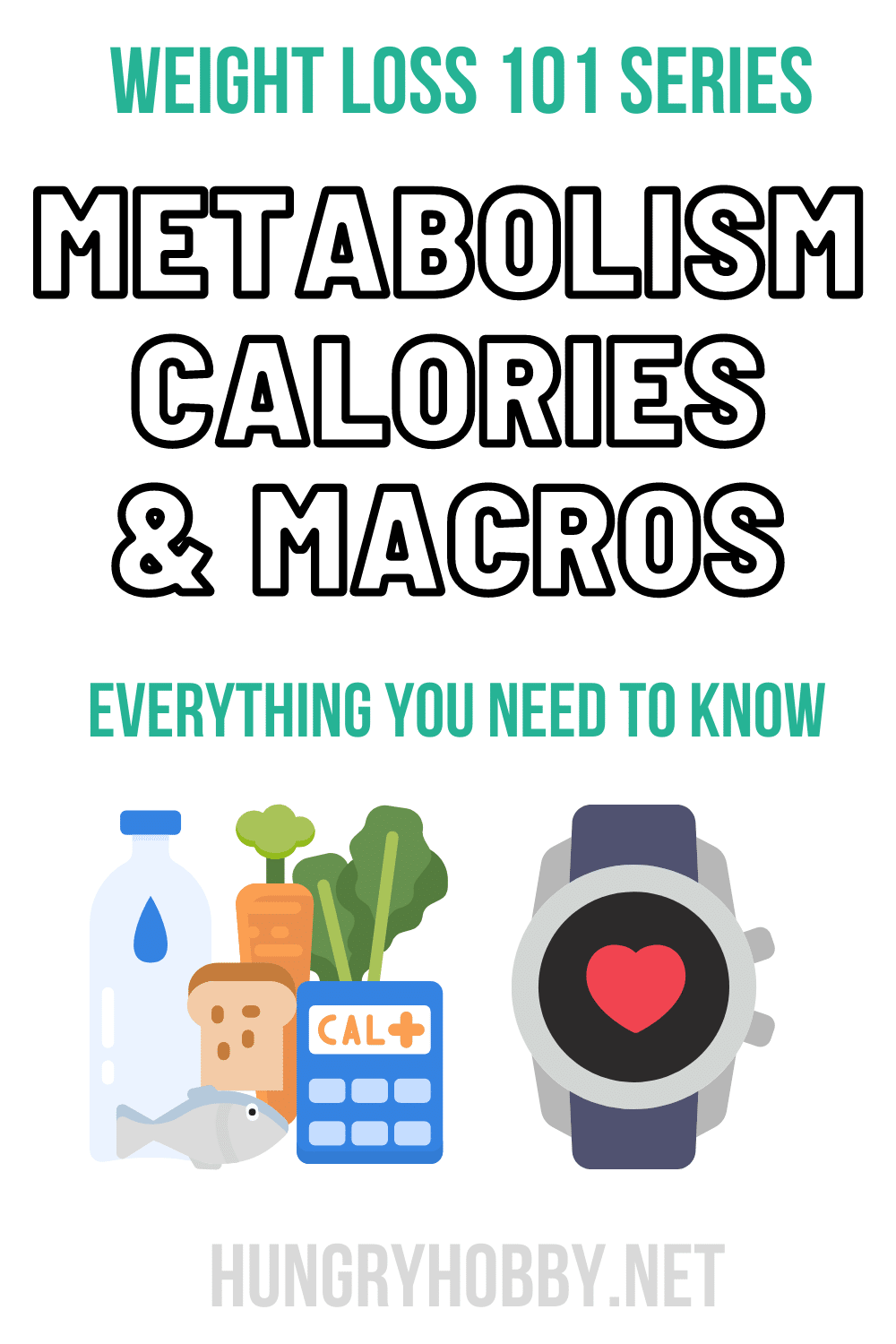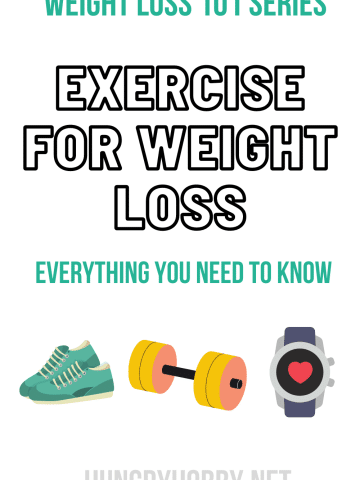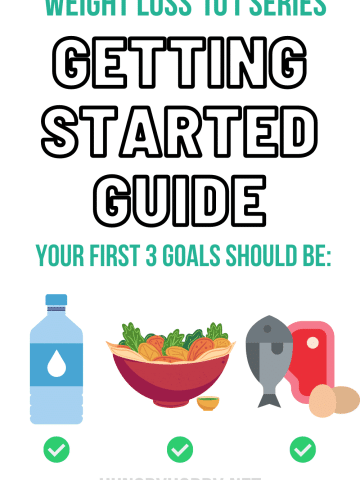Here is the deal. The absolute truth.
You have to be calorie deficient to lose weight.
You absolutely have to. There is no getting around it. If you aren't calorie deficient, your body does not need to break down stored energy for fuel, and you won't lose weight.
HOW you become calorie deficient and what level of calories is needed for you to be deficient is where it gets individualized. Typically my getting started changes are enough to switch your diet to a calorie deficit, and you'll begin to lose weight. But, not always.

If you don't start losing weight slowly after making diet changes, the next step I typically suggest is to track your intake for a few days. When most people think of calorie counting, they think of obsessively logging every detail and trying to stay under a specific number. While you can use that approach, that isn't typically what I suggest for my clients. Instead, we use calorie counting as a feedback tool. Here is what I recommend:
- Pick two random weekdays and a weekend to track (not an entire week.)
- Keep track of everything you ate in the notes section of your phone and transfer it to a tracking app (I like cronometer, but my fitness pal is OK too) at the end of the day.
- Now objectively look at how the calories stack up.
For many of my clients, they are eating healthy, but they are still consuming too high calories to lose weight. So they start making minor changes like eating half of a banana instead of a whole in their oatmeal. Switching snacks from calorie-dense health bars to veggies. Etc. They choose what they can cut down on and still be happy. Also, keep in mind that you don't have to be calorie deficient forever, just while losing weight. Often you can add many of those things back in as your fitness level increases and you approach your goal weight.
I often suggest my clients continue to track a couple of days a week until they reach their goal weight. Not every day, but just a couple of times a week. This helps keep you mindful of calories without becoming obsessed about it. This worked well for me when I lost the baby weight from KJ.
Less is Not Better

Keep in mind that fewer calories are not better.
You should never ever ever ever eat under your BMR. BMR is your basal metabolic rate and runs like a thermostat in your body. In starvation mode, it will turn down your calorie burn to conserve calories. It will temporarily slightly increase in excess mode, but your body will still store fat if you eat over its needs.
How do you figure out your BMR? There are three ways:
- Direct Calorimetry - we do this in the course I teach at the local community college, and I also administered these tests when I worked at the gym. This is the most accurate way to figure out your BMR. It tells you what you are burning vs. calculating what you should be burning. I sometimes suggest getting this test done or some blood work if a client is not losing weight at the number I calculated they should be losing weight at. It can point us to thyroid or iron metabolism issues if you aren't burning enough calories.
- Body Composition Calculation - machines such as the bioelectrical impedance scales measure your body composition (like fat and muscle mass) and give you a slightly more accurate calculation than if you just calculated your BMR based on height or weight. Taking account of your muscle mass in your BMR calculation is important because two people of the same height and weight but different body fat percentages could be burning significantly different calorie levels. Many gyms have at least handheld BI scales. The most accurate ones are those that use touchpoints on your hands and feet.
- Calculation - you can put information into an online calculator such as height, weight, gender, and age. This method will estimate your calorie burn. It is the least accurate of the three options and the most available.
Once you have your BMR number, you need to calculate your TDEE (total daily energy expenditure):
TDEE = BMR x 1.2 + calories burned in exercise
There are other methods of calculating TDEE where you can use a higher activity factor (that's the 1.2), but I find they overestimate your calorie burn 99.9% of the time.
OK, now you have your number. Weight loss occurs when you eat above your BMR and below your TDEE. That's the sweet spot. Eating under your BMR will trigger a cascade of hormonal messages that tell your body to conserve energy and drive you to eat. You may be able to override these cues for a while with sheer willpower. Still, eventually, either you'll stop being able to lose weight at that low of calories, or the cravings will get so intense you'll give up entirely and experience the rebound effect.
If you are not losing weight at or around your BMR, it's time to enlist help. You may have a thyroid issue or other hormonal issues. See why 1200 calories is not enough.
What about Macros?
The next layer is tracking your macronutrients (aka macros) such as protein, fat, and carbohydrate.
Paying attention to what your balance is throughout the day has many benefits. Here are just a couple:
- Getting enough protein helps keep you fuller. So a diet with 15% protein will not be as easy to maintain as a diet with 30% protein.
- Controlling blood sugar. If you are at risk of diabetes or have seen some blood sugar changes, ensuring your meal and the daily split is balanced will help decrease insulin needs and, therefore, insulin resistance. Even if you aren't at risk for blood sugar changes, steady blood sugar equals steadier energy levels.
I typically set most clients (not all) to a 40% carbohydrate, 30% fat, and 30 % protein goal. This is similar to the macro split provided in my weekly meal plans. It's a good balance, will help keep you fuller at lower calorie levels, but it isn't extreme. Learn more about Macros in this post.
Calorie and macro tracking can be an extremely helpful tool or it can be the vain of your existence. I suggest only implementing it once you've hit a plateau and I suggest approaching it as a feedback tool that you use for .....feedback, and feedback only. The tracking tool does not determine your hunger levels, it simply gives us a means of feedback of what is working and what is not. Don't let the goal number dictate everything you eat, that's when we start moving toward disordered eating and unsustainable eating patterns that will not result in long-term weight loss. It's a tool, not the end all be all!
MORE HELPFUL WEIGHT LOSS INFORMATION POSTS:
- Weight Loss 101: How These Four Stressors Prevent Weight Loss
- Weight Loss 101: Getting Started Guide
- How Fast Should You Lose Weight?
- Why 1200 Calories Is Not The Right Number
- Why Your Hormones Need Carbs
- What's Up With Hormones and Weight Gain
- Is Fasting Bad For You?
- How to Get Off Keto Without Gaining Weight
- Carb Cycling What Is It And How Does It Work?
- The Rule of 3 or Sometimes 4
- Why Weight Loss Backfires and All About Leptin Resistance
- What's Up With Hormones and Weight Gain
- 10 Tips to Prevent Late Night Snacking
- Are Food Sensitivities Preventing Your Weight Loss?
- Are Cheat Meals Bad For Weight Loss?






Leave a Reply